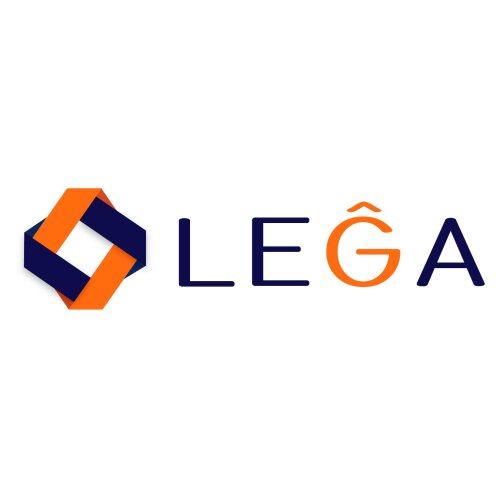Best Lawsuits & Disputes Lawyers in Venezuela
Share your needs with us, get contacted by law firms.
Free. Takes 2 min.
Or refine your search by selecting a city:
List of the best lawyers in Venezuela
About Lawsuits & Disputes Law in Venezuela
The legal system in Venezuela is based on civil law, which has its roots in the Napoleonic Code. The system comprises various legislative, judicial, and enforcement bodies. Lawsuits and disputes in Venezuela can encompass a wide range of legal issues, including civil disputes, commercial conflicts, labor disagreements, and family matters. The judicial system in Venezuela is tiered, with courts ranging from local municipal courts handling smaller matters to higher courts such as the Supreme Tribunal of Justice.
Adherence to procedural norms is crucial in Venezuelan legal matters, and court decisions can be subject to delays due to factors such as administrative inefficiencies. This makes having legal guidance pivotal in navigating the complexities of the legal framework in Venezuela.
Why You May Need a Lawyer
Engaging with an attorney can significantly impact the outcome of legal disputes in Venezuela. Here are some common situations where legal assistance may be necessary:
- Commercial Disputes: Conflicts arising between businesses, such as contractual disagreements or business dissolutions.
- Property Issues: Disputes over property ownership, zoning, or lease agreements.
- Family Law: Matters involving divorce, child custody, or inheritance issues.
- Labor Disputes: Conflicts between employers and employees regarding contracts, layoffs, or workplace conditions.
- Debt Recovery: Navigating claims against debtors or defending against unjust claims.
An experienced lawyer can help in determining the legitimacy of a case, representing individuals in court, and ensuring adherence to legal norms and requirements.
Local Laws Overview
Understanding the local laws is vital, and here are key aspects relevant to lawsuits and disputes in Venezuela:
- Court Structure: The judicial hierarchy includes municipal courts, district courts, and the higher courts culminating in the Supreme Tribunal of Justice, with distinct roles and jurisdictions.
- Procedural Laws: The procedural code governs how suits are filed, argued, and judged, making procedural compliance essential.
- Alternative Dispute Resolution: Mechanisms like arbitration and mediation are encouraged to resolve disputes efficiently outside the court system.
- Timeframes: Legal processes might be protracted due to administrative backlog; hence keeping track of deadlines and filings is crucial.
- Enforcement of Judgments: An understanding of enforcement procedures is necessary once a judgment is awarded.
Frequently Asked Questions
What is the first step in starting a lawsuit in Venezuela?
Initiating a lawsuit usually begins with filing a formal complaint with the appropriate local or district court. Legal advice is recommended to ensure proper procedure compliance.
How are disputes typically resolved in Venezuela?
Disputes can be resolved through litigation in courts or via alternative dispute resolution methods like arbitration or mediation for faster outcomes.
What role do lawyers play in Venezuelan disputes?
Lawyers provide expertise in navigating the legal infrastructure, ensuring compliance with procedural norms, and advocating on behalf of their clients in court or negotiations.
Can international disputes be settled in Venezuelan courts?
Yes, but it’s important to determine jurisdiction and applicability of Venezuelan law, which may require specialized legal advice.
What are the costs associated with lawsuits in Venezuela?
Costs can include court fees, attorney fees, and potential extras for expert witnesses or translation services. Costs vary based on dispute complexity and length.
How long does it typically take to resolve a dispute?
Resolution time depends on dispute complexity and court efficiency. It could range from a few months to several years.
What if I cannot attend court hearings?
Your lawyer can represent you, but it is crucial to inform the court and provide valid reasons for your absence as stipulated in procedural laws.
Are court decisions in Venezuela subject to appeal?
Yes, many court decisions can be appealed to higher courts, but it is essential to adhere to strict appeal deadlines.
What are arbitration and mediation?
They are alternative dispute resolution methods where a neutral third party aids in achieving a settlement without traditional court proceedings.
Is it possible to settle a dispute without going to court?
Yes, parties often resolve disputes out of court through negotiated settlements or by using arbitration and mediation.
Additional Resources
Here are some resources that can provide further assistance:
- Venezuelan Bar Association: Can provide referrals to competent legal professionals.
- Ministry of Justice: Offers information and resources related to legal processes and rights.
- Legal Aid Clinics: Non-governmental organizations (NGOs) may provide assistance for those unable to afford legal representation.
- Alternative Dispute Resolution Centers: Offer services related to mediation and arbitration.
Next Steps
If you believe you require legal assistance, consider taking the following steps:
- Identify the type of legal issue you are facing to seek specialized advice.
- Consult with a Venezuelan lawyer to understand the specific legal framework and procedural requirements for your case.
- Gather relevant documents and evidence pertaining to your dispute.
- Consider alternative dispute resolution methods to potentially expedite conflict resolution.
- Ensure consistent follow-up on legal proceedings and maintain open communication with your attorney.
Seeking legal counsel early can streamline processes and enhance the potential for favorable outcomes in complex disputes.
Lawzana helps you find the best lawyers and law firms in Venezuela through a curated and pre-screened list of qualified legal professionals. Our platform offers rankings and detailed profiles of attorneys and law firms, allowing you to compare based on practice areas, including Lawsuits & Disputes, experience, and client feedback.
Each profile includes a description of the firm's areas of practice, client reviews, team members and partners, year of establishment, spoken languages, office locations, contact information, social media presence, and any published articles or resources. Most firms on our platform speak English and are experienced in both local and international legal matters.
Get a quote from top-rated law firms in Venezuela — quickly, securely, and without unnecessary hassle.
Disclaimer:
The information provided on this page is for general informational purposes only and does not constitute legal advice. While we strive to ensure the accuracy and relevance of the content, legal information may change over time, and interpretations of the law can vary. You should always consult with a qualified legal professional for advice specific to your situation.
We disclaim all liability for actions taken or not taken based on the content of this page. If you believe any information is incorrect or outdated, please contact us, and we will review and update it where appropriate.
Browse lawsuits & disputes law firms by service in Venezuela
Venezuela Attorneys in related practice areas.
Browse lawsuits & disputes law firms by city in Venezuela
Refine your search by selecting a city.













